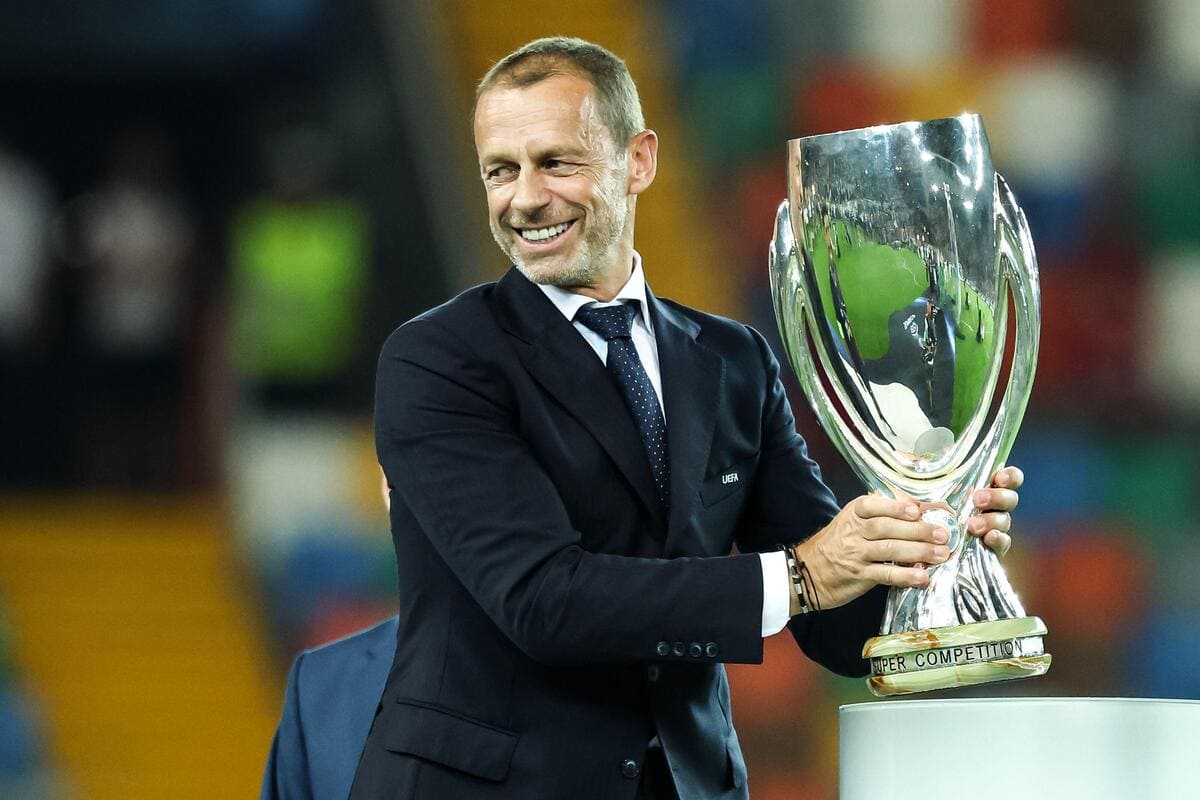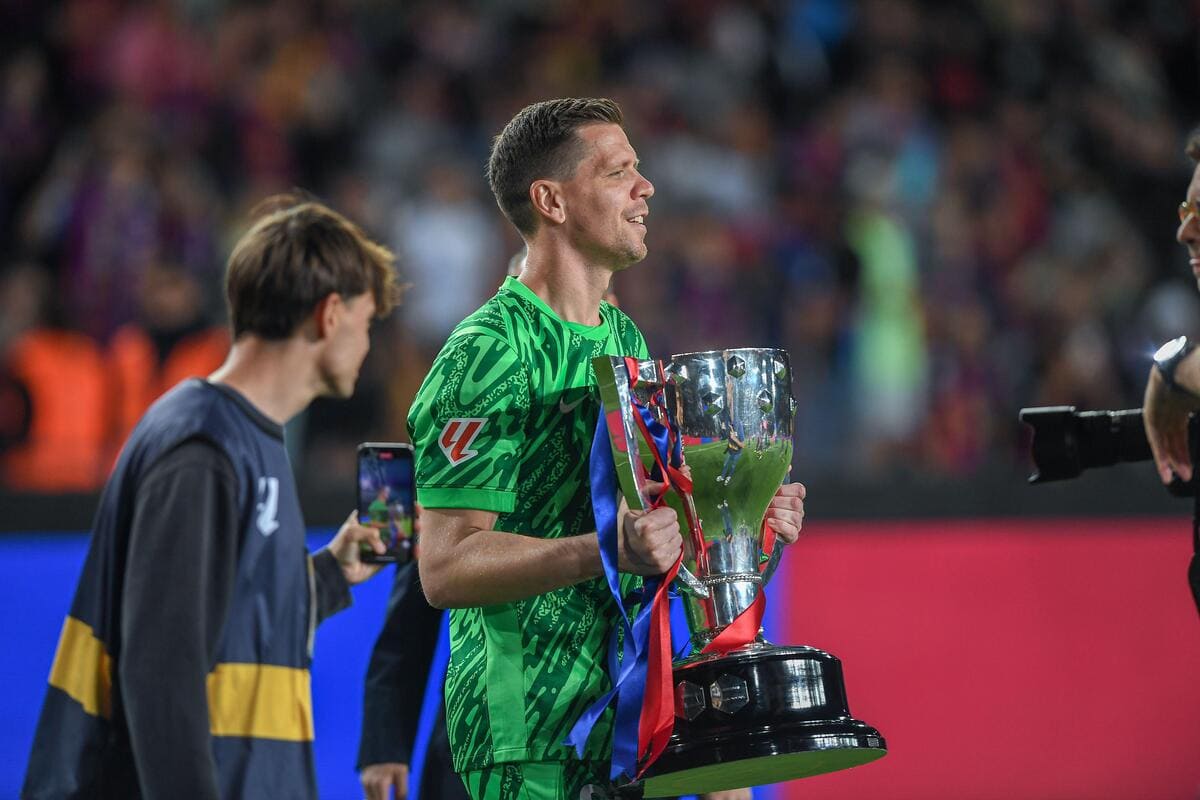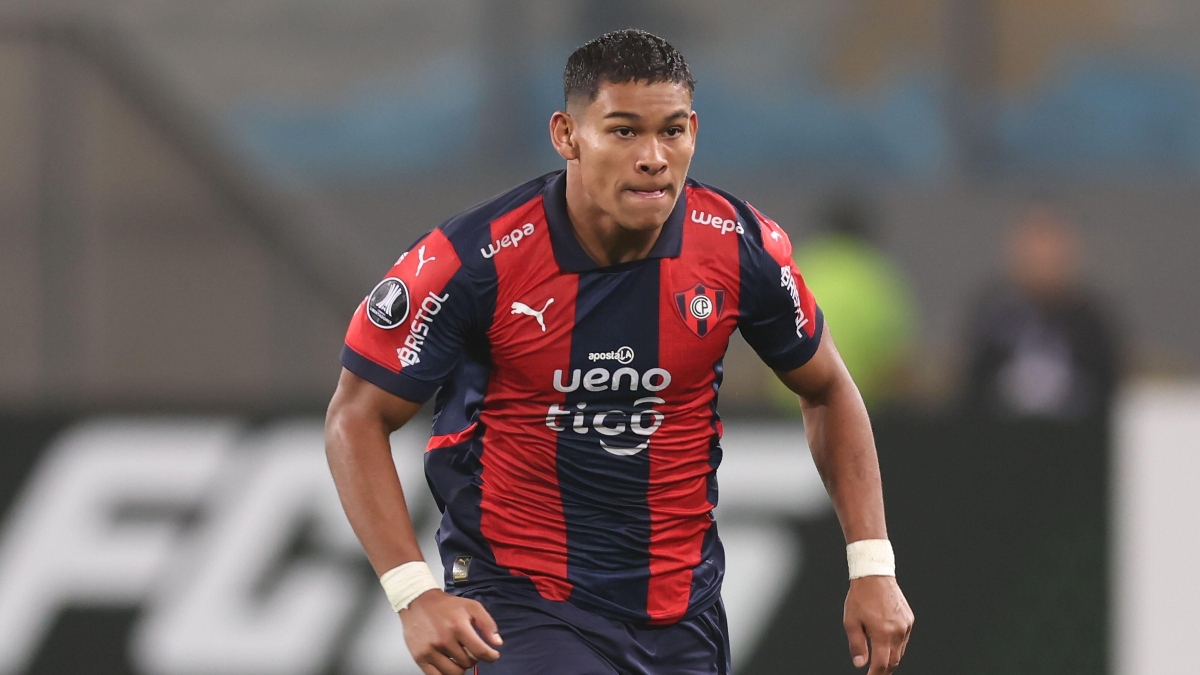UEFA president Aleksander Ceferin has hinted a lack of political pressure has prevented Israeli clubs from being kicked out of European competitions.
Russian clubs were banned following the country’s invasion of Ukraine in February 2022 but the same sanction has not been applied to Israel despite the atrocities currently being carried out in Gaza.
Asked to explain the difference, Ceferin told Politico: “Look, first of all, what’s happening with civilians there is personally hurting, killing me. It’s impossible to see these things anymore.
“From the other point of view, I’m not a supporter of banning the athletes. Because what can an athlete do to their government to stop the war? It’s very, very hard.
“Now, the ban for Russian teams is, I think, three and a half years. Did the war stop? It didn’t. So for now, I don’t know. I have to say that with the situation in Russia and Ukraine, there was a super strong political pressure. Now it’s more a pressure of the civil society than politicians, because politicians are obviously, when it comes to wars and victims, very pragmatic.
“I cannot say what will happen. There are talks about everything, but me personally, I’m against kicking the athletes out.”
Expelling teams creates other issues – Ceferin
Ceferin cited the example of Yugoslavia when they were expelled from Euro 1992 following the dissolution of the country and the ensuing war.
The Slovenian added: “The former player of Yugoslavia, [Dejan] Savićević, who is now president of the Football Federation of Montenegro, he said that in ‘92 when Yugoslavia was banned from playing the European Championship, they [the players] were all against [Slobodan] Milošević.
“They were all against the system. The system was non-democratic and so on. But they were kicked out. And because of the political sanctions, the result was the hatred against the West that still stays. In Serbia, for example, if you go to a referendum about NATO, 80 percent will be against.
“So, for me, sport should try to show the way but not by forbidding the athletes to compete. But to be honest, again, with the war, Russia-Ukraine, we had an almost hysterical political reaction. We were among the first to act, truly believing that sport could help put an end to this tragedy. Sadly, life showed us otherwise. Now I don’t see much reaction from politics. From civil society it’s huge.
“And I cannot understand how a politician who can do a lot to stop the slaughter, anywhere, can go to sleep seeing all the children and all the civilians dead. I don’t understand it. You know, the idea football should solve these problems? No way.”
UEFA came in for criticism for displaying a banner before the Super Cup clash between Paris Saint-Germain and Tottenham that read: “Stop killing children – Stop killing civilians.”
It was taken to be a direct message to Israel but Ceferin said it was a more general plea.
He added: “We have a UEFA foundation for children. We are not living on another planet. We are living in this world. And when you see children dying all around the world because of — it’s a diplomatic statement, if I say — reckless politicians. Whoever thinks that ‘Stop Killing Children, Stop Killing Civilians’ is a political message is an idiot, for me.
“It’s terrible that children are dying because of political interest, starving to death. Mohamed, who was giving the medals with me [at the Super Cup], lost his mother and his father. And he was heavily injured. I’ve never seen a child hugging me so much as he did. He needs love. He doesn’t need another bomb on his head because of a geopolitical interest. So it’s far from politics.
“But from the other point of view, you know, politics is everywhere. When you show your Scottish flag, it’s politics. But we don’t interfere in politics, but we will not say that killing children anywhere or civilians is a good thing. We have to say we despise it, and we will always say it.
“But you know what happened in the end? I got letters from the populist extreme organisation from Israel that because of that we are anti-Semitic. From the other point of view, I got from extreme far-left and pro-Palestinian ‘solidarity’ groups that ‘this is nothing, that we’re just washing our hands.’
“So, you know, in life probably many times it’s the best not to do anything. But if such a big thing is going on, such a terrible thing that doesn’t allow me to sleep – not me, all my colleagues – nobody in this organisation said we shouldn’t do it. No one. Then you have to do what is the right thing to do.”
Israel also remain in international competition. They face a World Cup qualifying doubleheader over the next week, visiting Moldova on Friday before a home fixture against Italy that will be staged in the Hungarian city of Debrecen.



